Search Images
Browse Content (p. 321)
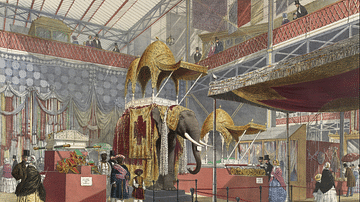
Image
Indian Hall, Great Exhibition
A print of an original watercolour by Joseph Nash showing a section of the Indian Hall in the Crystal Palace of the Great Exhibition of 1851. (British Library, London)
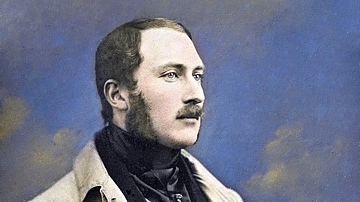
Image
Albert, Prince Consort
An 1848 hand-coloured photograph of Albert, Prince Consort (l. 1819-1861), husband of Queen Victoria (r. 1837-1901). Taken by William Edward Kilburn. (Royal Collection)
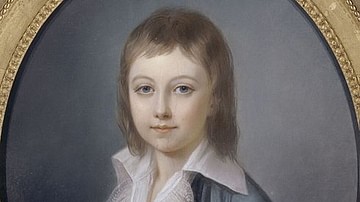
Image
Louis XVII of France
Portrait of the dauphin Louis-Charles de France (1785-1795), recognized by royalists as King Louis XVII of France. Oil on canvas by Alexander Kucharsky, 1792.
Palace of Versailles.
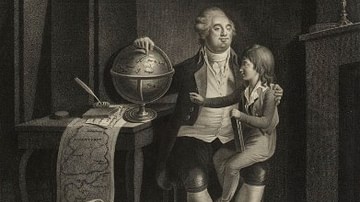
Image
Louis XVI Educating His Son in the Tower of the Temple
As a prisoner in the Tower of the Temple, King Louis XVI of France still made sure to educate his son, the dauphin Louis-Charles (Louis XVII of France) on history and geography. Image by unknown author. Museum of the French Revolution, Vizille...
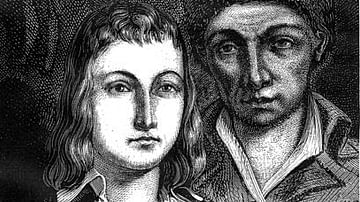
Image
Louis XVII and Antoine Simon
Louis-Charles de France (Louis XVII of France) and his jailor, the cobbler Antoine Simon; later royalist writers told of the abuses inflicted by Simon. Engraving by Yan' Dargent, from Histoire de la Révolution by Adolphe Thiers, Ed. 1866...
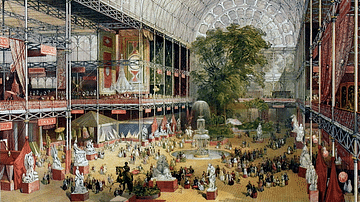
Image
Crystal Palace Interior, Great Exhibition
An illustration by J. McNeven showing a section of the interior (the Grand Entrance) of the Crystal Palace in London which hosted the Great Exhibition of 1851. Printed by Ackermann & Co., 1851. (Victoria & Albert Museum, London)
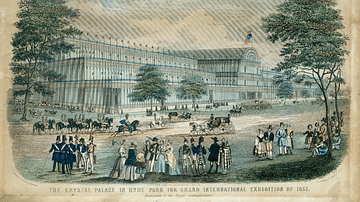
Image
Illustration of the Crystal Palace
An illustration of the Crystal Palace hosting the Great Exhibition of 1851 in London. (Read & Co. Engravers & Printers, 1851)
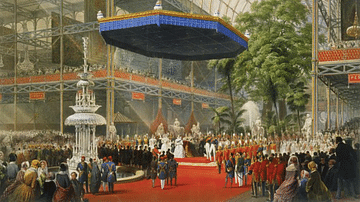
Image
Queen Victoria Opening the Great Exhibition
An illustration by Louis Haghe showing Queen Victoria (r. 1837-1901) opening the Great Exhibition of 1851 in the Crystal Palace in Hyde Park, London. (Victoria & Albert Museum, London)
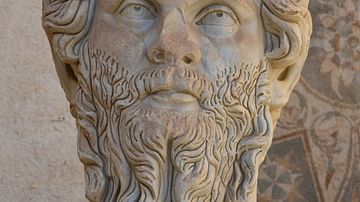
Image
Portrait of Septimius Severus from Djemila
Colossal head of the Roman emperor Septimius Severus (r. 193-211 CE)
Museum of Djemila, Algeria.
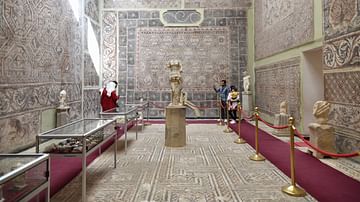
Image
Museum of Djémila, Algeria
The Museum of Djémila in Algeria is located within the ruins of the spectacular Roman town of Djémila (or Cuicul as it was then known) and contains many of the beautiful mosaic pavements found on the site. They cover around 1700 square metres...